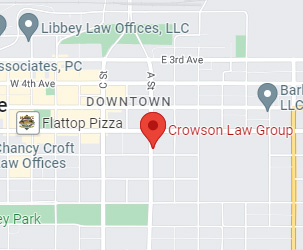4 Prerequisites of Personal Injury Claims

Personal injury cases are not exclusive to auto accidents, although most personal injury claims involve car accidents. Bodily injuries vary, and they can include product, liability, dog bites, slips & falls, and much more. A personal injury attorney in Alaska can help you if you’re struggling with personal injuries.
Victims of accidents are eligible for general damages that cater to financial and non-financial losses resulting from an accident. Alaska is famous for many air accidents than any other state, but the other type of accidents are common. A personal injury attorney in Alaska can help accident victims pursue justice and recover damages for injuries and damaged property while ensuring their clients’ rights are protected.
4 Prerequisites of Personal Injury Claims
The outcome of a personal injury case is dependent on the geographical location; hence, the prerequisites for personal injury claims can vary by jurisdiction. However, some features of personal injury claims are similar across the board, including:
- Duty of Reasonable Care
A plaintiff or their legal team should prove that duty of reasonable care was breached before the court, causing an accident. Reasonable care, in this case, means being as cautious as an ordinary rational person. For instance, car drivers are prohibited from drunk driving or running red signs, meaning they’ll have breached their duty of care to other road users.
- Failure to Observe Reasonable Care
The second part of a personal injury lawsuit proves the defendant failed to exercise the duty of reasonable care, even if the accident wasn’t intentional and there was no motive for causing injuries. In simple terms, the plaintiff or their representative should prove negligence on the defendant’s part. For instance, they run the red lights causing the accident.
- Causation
After proving failure to exercise reasonable care or negligence, the plaintiff must prove that their negligence was to blame for their injuries. The actions of third parties can’t be cited in personal injury cases. The defendant can mitigate their liability by citing contributory negligence, meaning the plaintiff also contributed to a certain degree.
- Existence of Damages or Injuries
Finally, the plaintiff must show their loss, such as physical injuries or property damage, since personal injury claims focus on recovering damages for injuries or property. The components of a personal injury case can include damages for:
- Lost wages.
- Lost earning opportunities.
- Medical expenses.
- Damaged property.
- Pain and suffering.
Qualities of a Good Personal Injury Attorney
Accident casualties should exercise due diligence when engaging a personal injury lawyer. Some lawyers promise heaven to their clients only to fail miserably. The following are some of the qualities that should be possessed by good and competent personal injury attorneys:
- The attorney must be a good listener.
- Your attorney must have good communication skills.
- The attorney should have positive client reviews.
- They should have had a high success rate in past cases.
The mandatory prerequisites in personal injury lawsuits are hard to prove without a competent attorney; you can lose a solid case with poor representation.


